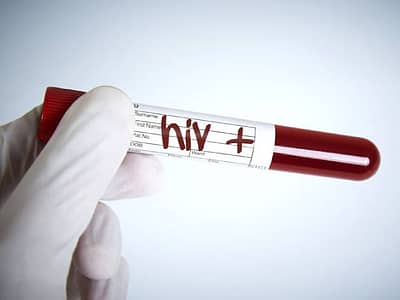

It is unlawful for any person to donate blood, milk, bodily fluids, semen, organ tissue to a medical facility or designated clinic knowing that person has AIDS.
The mental state required for a violation of Health and Safety Code 1621.5(a) HSC is knowingly of the infection but strict liability towards the act of donating. Knowingly is a conscious awareness of the circumstances required to achieve the completion of the act you desire. And having a reasonable and objective understanding of the natural and probable consequences of anything that might transpire to get the objective completed. As applied to Health and Safety Code 1621.5(a) HSC, the State must prove beyond a reasonable doubt that the accused had a conscious understanding that the accused was diagnosed with the AIDS virus or its HIV precursor, evidenced by a medical diagnosis from a medical professional.
Since Health and Safety Code 1621.5(a) HSC is a strict liability offense the accused’s intent to donate the accused’s semen, blood, sperm, milk, bodily fluid, or tissue is not considered for a determination of guilt, the act to donate alone is sufficient which means that the accused desire to donate AIDS infected blood, tissue, milk, semen, or fluids to a recipient is not required; or is actual transmission to a recipient needed.
The FDA requires that all donations be screened for HIV, AIDS, and Hepatitis B. The screening procedure in the United States requires serologic testing and mini pool nucleic acid testing (NAT). The form of testing with random mini pool nucleic acid testing provides a window of detection that concludes upwards to a 14-day window from the date of infection to provide clarity to screen out HIV positive blood donations. Other testing procedures are not as conclusive but are still FDA standard. Thus, for a person to knowingly donate while being infected with AIDS they must have received a positive testing result after the 14-day window prior to donation. The transmission rates of infections are low; and does not affect the blood supply. Health and Safety Code 1621.5(a) HSC is a strict liability crime for the betterment of social peace.
The Federal HIV Organ Policy Equity (HOPE) Act permits donations between HIV positive donors and HIV positive recipients under the care of approved research institutes that are sanctioned by the Organ Procurement and Transplantation Network. Avascular tissue donation is permissible. These are samples that contain limited or no blood vessels and help osmotically process out waste related to HIV. Currently the kidneys and liver are the only organ tissue being utilized tissue and organ donations. California follows federal guidelines under Senate Bill 1408 SB: The Tissue Equity Donation Bill.
The FDA requires extensive review of medical records for risk factors regarding sperm bank donations. For anonymous donations, the FDA standard quarantine cycle is 6 months before a donation is prepped for transfer to a recipient.
California law has a state-wide ban on using any human milk that tests positive for AIDS or HIV for the purposes of donations to milk banks in the. The standards for which the processing, storing, documentation and testing of human milk is followed by the State is through the Human Milk Banking Association of North America (HMBANA).
Are there any exceptions to a violation under Health and Safety Code 1621.5(a) HSC?
Yes. If there is no proof of a medical diagnosis of an infection of the virus within the accused at the timeline of the offense there is no violation of Health and Safety Code 1621.5(a) HSC.
Other qualifications of exceptions apply if: (1) the accused informs the medical facility or clinic that the subject blood, tissue, organ semen or milk should not be utilized for transfusion; (2) the accused is mentally incompetent; (3) the accused donates their blood, tissue, organ, semen, or milk for their own use for storage- in the realm of an autologous transmission.
The penalty for a violation of Health and Safety Code 1621.5(a) HSC is charged as a felony. Senate Bill 239 SB does not apply. As a felony, the penalties include confinement in prison for terms of either 2,4 or 6 years with fines not exceeding $10,000 dollars.
What is an example of a violation of Health and Safety Code 1621.5(a) HSC?
If you are charged with a violation of Health and Safety Code 1621.5(a) HSC, call Law Mart today.
Call LAW MART for a FREE Case Review: 310-894-6440

Copyright © 2024 law – Powered by AmelCS